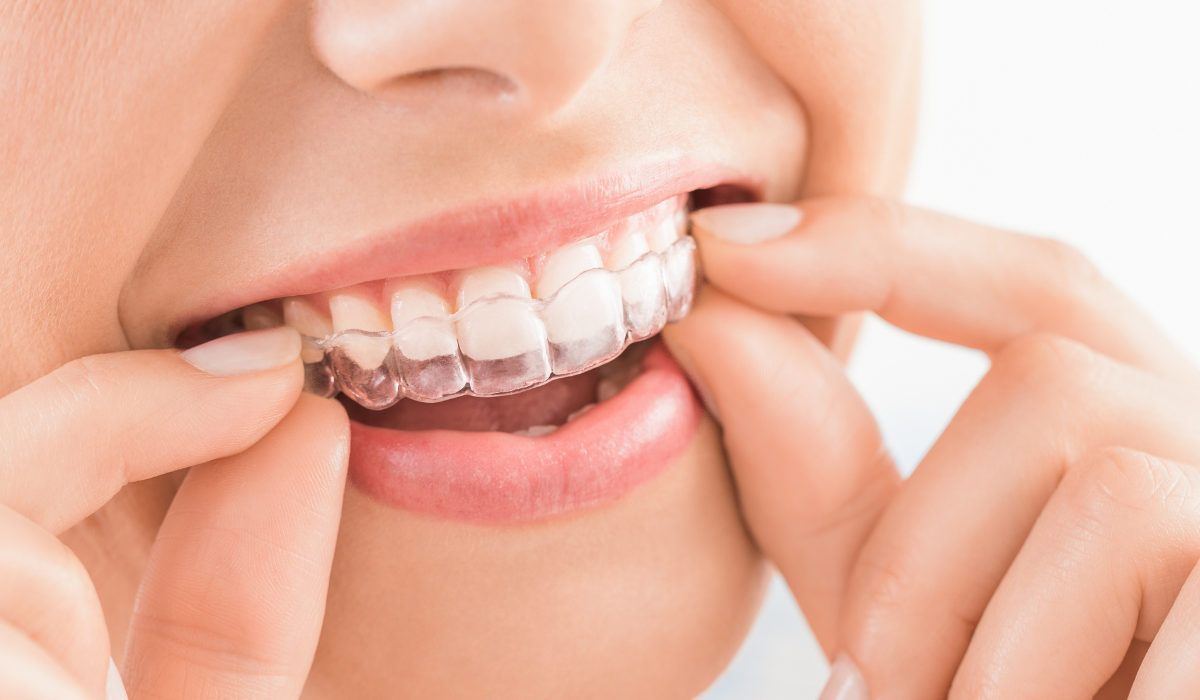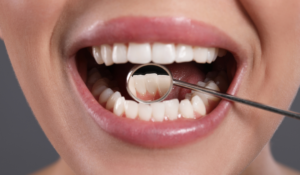Osteoporosis is a condition that weakens the bones while at the same time causing their tendency to fracture. Even when most people describe it as connected to bone-related health, such a condition could affect your dental health as well, particularly your teeth. Does osteoporosis affect teeth? Within this article, we will discern how osteoporosis is associated with your teeth, how such affects your dental health, and what you might do for your smile.
What is Osteoporosis and How Does It Affect Your Body?
Osteoporosis is a disorder that causes the bones to appear brittle and hence weak because there has been a loss of their density. That will make more people prone to breaking their bones in areas or zones such as the spine, hips, or wrists. If one loses or does not construct adequate bone amount in the body, then his/her condition is called osteoporosis. It especially comes about as the age becomes older, primarily affecting women shortly after menopause but can easily strike anyone in this world.
When the bone density decreases, bones become weak. Although osteoporosis affects the skeleton majorly, it has serious implications in other health aspects, such as your oral health. This can include potential issues with your teeth and gums.
Does Osteoporosis Affect Teeth? Understanding the Connection
While osteoporosis and teeth seem like things that would never be associated, the truth of the matter is that the loss of bones process weans away your body’s skeleton, whereas it can wean away the bones in your jaw to support the teeth in your mouth. As such, the start of the decay of your jawbone due to osteoporosis leads to the loosening of the teeth and subsequently the falling of the teeth.
According to the National Institutes of Health, the results of such studies have also revealed that individuals suffering from osteoporosis are more likely to suffer from dental problems such as tooth loss. Therefore, care for bone health not only for general health but also for dental health is quite significant.
How Osteoporosis Impacts Oral Health
Osteoporosis poses a risk to your oral health as it slowly develops over time. The jawbones hold your teeth in position. When the jawbones lose their density, they weaken and result in difficulties like loose teeth. In certain cases, it is hard to deal with them during eating, speaking, or even smiling. Besides, your weakened jawbones minimize the capabilities of your gums in holding your teeth.
The decrease in bone density might also lead to an increased vulnerability to gum diseases. When bones weaken, they provide less cushioning for surrounding soft tissues, increasing your vulnerability to infection and inflammation. This is why one needs to preserve healthy, powerful bones not just for the benefit of the whole skeleton but to ensure that all your teeth would last long with good strength.
Signs of Tooth Problems Linked to Osteoporosis
You must be aware of the symptoms that indicate your oral health is at risk due to osteoporosis. Early signs of potential problems with your teeth include:
- Loose Teeth: The teeth will become loose because the jawbone is weakening.
- Increased Tooth Sensitivity: You might feel aches or pains while eating hot or cold foods.
- Gum Disease: Red, inflamed, or bleeding gums might be a symptom of gum disease, which tends to be prevalent in people who have osteoporosis.
- Pain When Chewing: This might be a sign that the bones and gums in your mouth are not working to their full performance.
- Difficulty with Dentures: If you are a denture wearer, it may fit not as well, or hurt, which may affect your self-confidence.
The earliest stages of oral health issues may not appear very obvious, but addressing them early may help avoid much worse later on.
How Osteoporosis Increases the Risk of Tooth Loss
Osteoporosis places someone at risk of losing their teeth in two ways. One is the weakening of the jawbones which likely leads to loosed teeth, which eventually may fall out. Two, osteoporosis can affect the structure of the gums, making them liable to infections. Probably, the leading cause of tooth loss is gum disease, a product of entry through the weakened gums caused by bacteria.
In addition to that, those with osteoporosis have the risk of being severely attacked by gum diseases, which would also have an intensified impact on jaw bones. So this also shows that keeping your oral health checked regularly is an utmost priority when one suffers from osteoporosis.
How to Protect Your Teeth if You Have Osteoporosis

If you have osteoporosis, many exact things may be accomplished to assist shield your tooth and your mouth.
- Brush and Floss Regularly: Your best prevention is proper oral hygiene. Brush your teeth at least twice day by day and floss as soon as an afternoon to get rid of plaque and avoid gum disease.
- Use Fluoride: Fluoride makes the tooth of your teeth stronger, supporting them to defend them from decay and cavities.
- Avoid Smoking and Excessive Alcohol: Smoking as well as over-alcohol usage causes gum diseases, which are truly detrimental for a person suffering from osteoporosis.
- Wear a Mouthguard: If you grind your enamel, mainly whilst snoozing, you’ll no longer come with your tooth chipping off with constant grinding, due to a mouthguard.
- Get Regular Bone Density Tests: These can come across early signs of osteoporosis earlier than it has improved too far.
The Role of Diet and Supplements in Oral Health
What you eat can be crucial for your bone strength and your dental health. A good diet can promote good oral and overall health. These are some nutrients you need:
- Calcium: Very important for maintaining strong bones and healthy teeth. Great sources are milk, green vegetables, and many fortified foods.
- Vitamin D: Assists the body in better absorption of calcium and keeps the bones strong. Vitamin D occurs in fatty fish, eggs, and fortified dairy products.
- Magnesium: Its importance is for bone health. Magnesium is found in foods such as nuts, seeds, and whole grains.
Other supplements your healthcare provider may recommend include calcium and vitamin D for people with osteoporosis. Just be sure to check with your healthcare provider first before introducing any new supplement to your regimen.
Why Regular Dental Check-ups Are Important for Adults with Osteoporosis
If you have osteoporosis, then dental visits are more significant. Your dentist can monitor the oral health, and any possible changes in your jawbone indicating bone loss might be noticed during these visits. Professional cleanings and exams would also prevent the escalation of gum diseases and other dental problems.
Early detection of oral health issues can make all the difference between treatment options and outcomes. The best way to protect your teeth and smile is to stay proactive about dental care.
Conclusion
Does osteoporosis affect teeth? Yes, it does. Due to this process of weakening of bones in the jaw, one is more likely to lose teeth, gum diseases, etc. However, maintaining good oral hygiene, a healthy diet, and regular dental check-ups can protect the teeth and control the adverse consequences of osteoporosis on dental health. All of this will maintain the health of your smile so your teeth will not falter to deteriorate into life’s unguarded wear.
FAQ’s
Can osteoporosis cause tooth sensitivity?
Osteoporosis indeed weakens the jawbone and the gums, thus potentially increasing sensitivity to hot or cold food.
Is osteoporosis considered a disability?
Osteoporosis is not in itself a disability, but fractures or bone pain from it can cause a loss of mobility or restriction on any activity for a day, so there it can be considered a disability.
How can I prevent tooth loss if I have osteoporosis?
Maintain proper oral hygiene practices, avoid smoking and excessive alcohol, and periodically visit a dentist to know the issue very early.
Does osteoporosis only affect older adults’ teeth?
Though the problem is more common in elderly people, people with risk factors like low bone density are also prone to this issue in their oral health.






